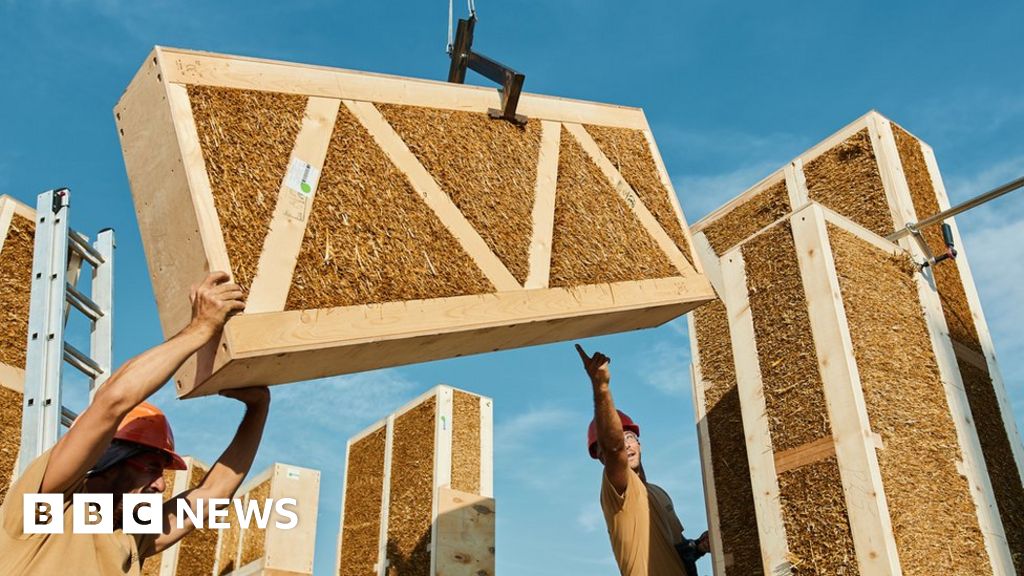This didn’t seem quite serious enough for UK, but it’s kinda neat.
Big Bad Wolf could not be reached for comment.
And as Insulation seems to have become my Special Interest at the moment, I dug into the material a little more.
It’s supposed to be installed 400mm thick.
It has a transmission value of 0.12WMK.
So 400mm on the outside of the house is equivalent to…150mm of glassfibre or 75mm of cellotex.
As it’s vapor permeable, it shouldn’t have any of the damp issues poorly installed insulation suffers from.
So, if you can get away with the look, and have the space outside, it’s a pretty cool (/warm) material.



The move nowadays is towards natural materials that breathe (exchange water vapor), but do not pass liquid water between layers.
It’s a delicate balance to hit, and as soon as mineral fibres get involved, the breathability becomes trickier.
I’d really prefer something fully sealed for that reason. No “delicate balance” or the need for clever wall design. Just water and air proof. But straw is probably the wrong material for this. I was imagining something simple like a quonset hut. Easy to make forms for it.
The trouble with fully sealed, is when it suddenly isn’t, but it’s not noticed. Because then you end up with moisture building up with nowhere to go.
There are definitely two paths, perfect seal, and managed permeability, and they both have their benefits.